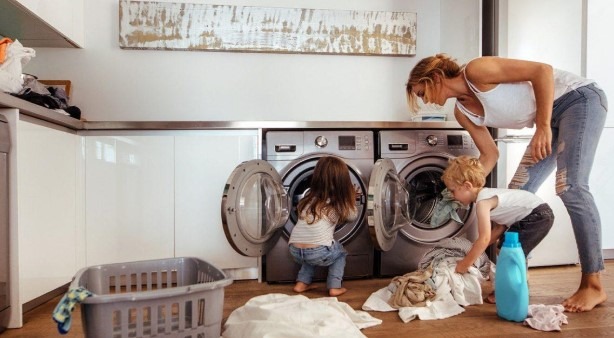Letting germs take camp in your home can have a devastating impact on the health of your family. If you do not make an effort to rid of bacteria from your home, in no time your kids will be unable to go to school because of flu, and you will not be able to go to work like you usually do.
If you want things to run as usual in your home, you have to take the following measures for germs-control.

1. Clean your home regularly
Things might get busy, and you might end up not getting time to do cleaning as often as you should. You should, however, not ignore this. It is one of the ways that you can protect your family from a sore throat caused by cases of flu. Routine cleaning of high traffic areas like the bathroom, kitchen, and the doorknobs will prevent the build-up and spreading of microbes.
To make cleaning more effective, you can use a disinfectant. This way, your family will not get in contact with disease-causing germs.
2. Proper storage of toothbrushes
You may not be aware of this, but, your toothbrush can be a host for a plethora of microbes. The reason why they thrive in such an item is that the bacteria feed on the same food that you feed on. These food particles are often left behind after brushing your teeth.
Proper handling of the toothbrushes entails rinsing it with hot water after use and placing it in an upright position. This is to ensure that the bristles stay free from moisture, where bacteria tend to multiply fast.
3. Encourage a handwashing culture
Regular handwashing goes a long way in preventing the multiplication and spread of bacteria. If you have kids, teach them how to wash hands after using washrooms and before they eat. To facilitate the habit of handwashing, avail a handwashing soap in the bathroom, and paper towels. You could use a hand drying towel; however, germs can still be transferred unless it is washed regularly. Also, you could invest in a sanitizer for family members who want to take a shorter time cleaning their hands.
4. Wash clothes every week

You will be surprised by how much bacteria your clothes and bedsheets carry. That is why you should stop ignoring the dirty clothes and letting them stay in the laundry basket for too long. Also, do not use sheets for more than one week. The dead skin cells you shed may attract mites and other insects that can facilitate the spread of germs.
Washing such fabric in high-temperature water can kill germs and insects that are not visible with the naked eye.
5. Ventilate your home
Allowing air to circulate in your home will go a long way in preventing the multiplication and spread of bacteria in your home. You can ventilate the house by keeping windows and doors open during the day to allow the free flow of air. Mechanical ventilation such as installing an air conditioner will also help in ejecting stuffy air from your home and allowing in fresh air from outside. Through ventilation, you can eliminate dust, dead cells, and other particles that might facilitate and encourage the growth of bacteria. Proper ventilation can prevent the spread of a flue from one member of your family to another.
Ventilation will also eliminate excessive humidity, which, as you are well aware, promotes the multiplication of bacteria and the growth of mold.
6. Do not allow shoes inside your house
Most people do not see a big deal in walking with shoes from outside inside the house. While most people’s concerns might be dirtying the carpet, there is more to worry about: germs. Note that the same shoes you let in the house step into public bathrooms, and other places, collecting dirt and bacteria along the way. This is one way that microbes can get into your home. By encouraging your family to leave their shoes at the door, you can stop the invasion of germs in your home. Also, you can provide comfortable slippers to be used only inside the house if your family needs footwear.
7. Pest control
Rodents, cockroaches, and other insects can also catalyze the invasion of germs in your home. These pests usually spread germs by getting into contact with your food. To avoid this, you can use pest control measures such as pesticides and traps for mice. Also, practice proper waste management to discourage the pests from lingering. Proper food storage, too, will prevent the spread of germs through pests.
To keep your family happy and healthy, you should keep your home free of germs. The tips above will come in handy in your journey of raising a healthy family.
I’m a 20-something stay-at-home mother and wife. I have an amazing husband, a beautiful daughter, two loving dogs, and a lazy cat. I wouldn’t change my life for anything! I love to read, listen to music, cook and blog!

Speak Your Mind